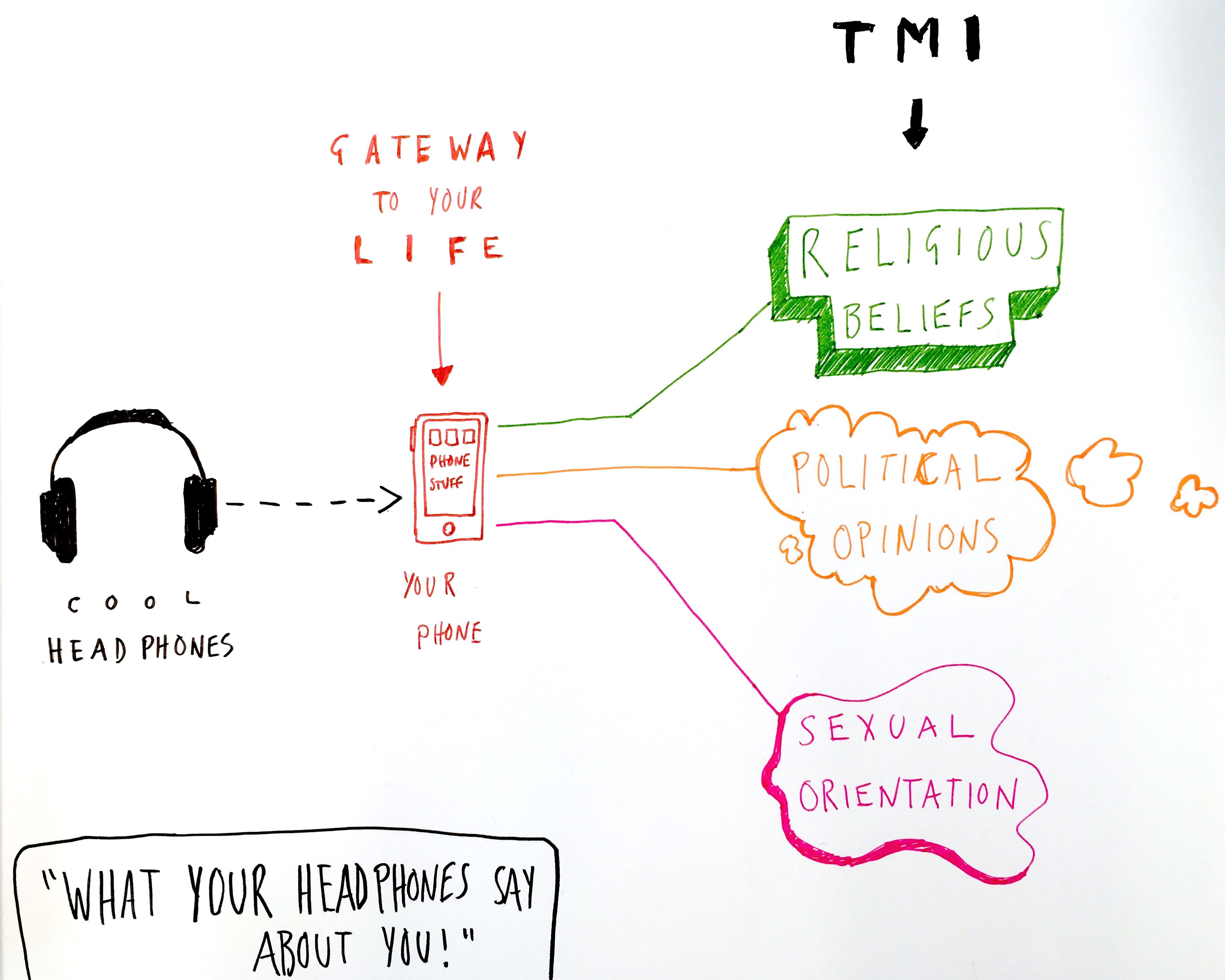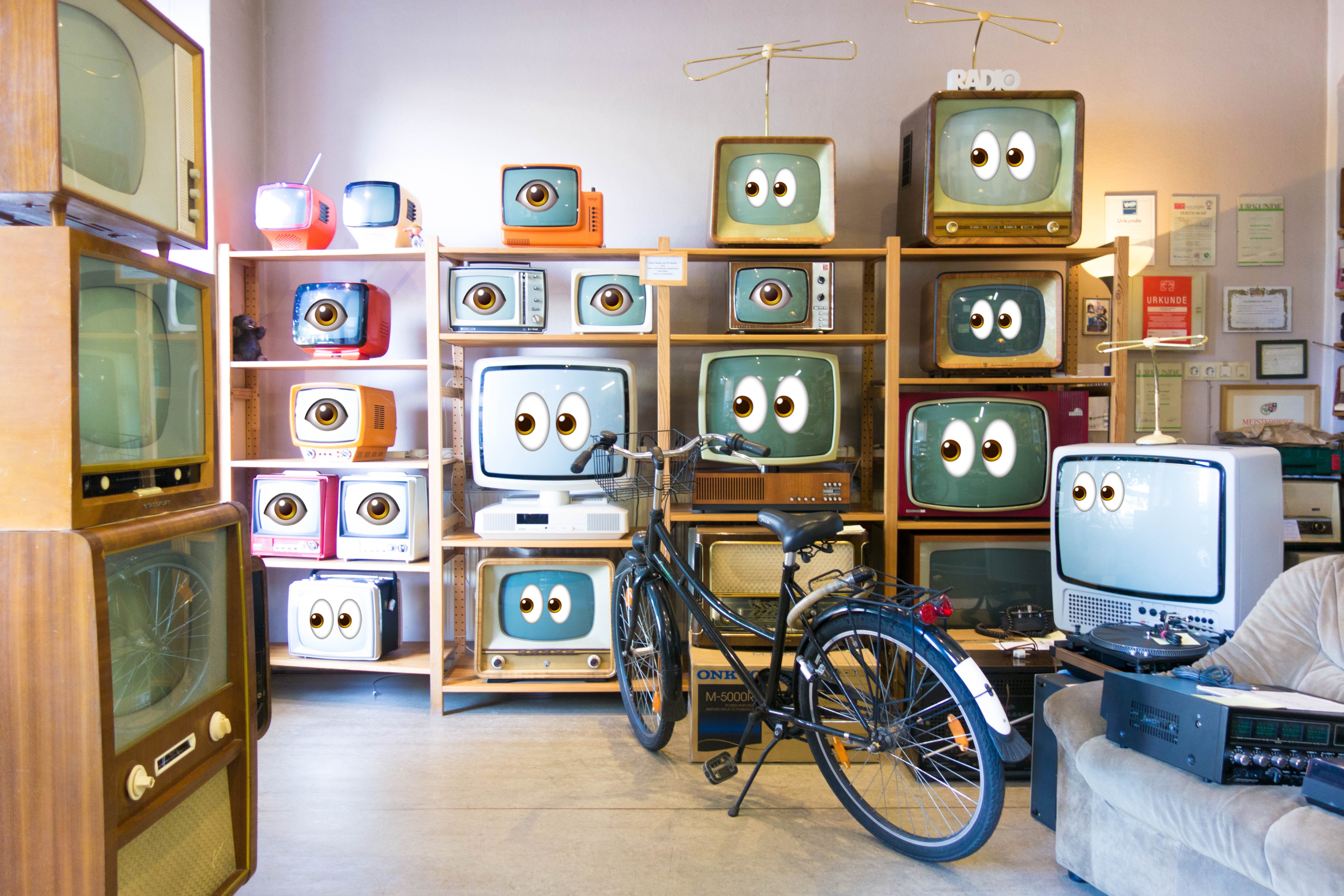Is ‘smart’ not just another word for ‘unwanted surveillance’?
Consider this: you buy a nice shiny new pair of headphones. When you unbox the headphones there’s a manual that says ‘download our app to set up’. So you get the app, you create an account, you connect your headphones. You very much enjoy the sound quality. However, the company that made these headphones is now very much enjoying being privy to:
- What music you listen to
- What podcasts you listen to
- What other media you consume on your phone (TV and film etc)
- What other apps you have
How is this? Even though the purpose of this app is to ‘set up’ your headphones, it also provides a gateway to your behaviour. By putting this app on your phone, you’ve told the headphone company who you are, and that you own a pair of their headphones.
So the headphone company has access to this data, and if they want, can share it with other companies. This is because they’ve used third-parties to help them build their app — a perfectly acceptable thing to do. However last week I used a number of third-parties to help me build this website, which is technically unlawful. That is because I have no control over what those third-parties can do:
“My website is actually my house, and I’ve invited you round for tea. What I haven’t told you is that there are also seven other people coming — they have free reign over what they do to my house, and the people inside.” Taken from this Incognito article
The same goes for apps — including the one ‘needed’ to set up your new headphones. Either intentionally or because of negligence, app developers can give third-parties access to the data you produce by using the app. In this case it’s the music and other media you consume.
 Why does a pair of headphones need to know this much about me?
Why does a pair of headphones need to know this much about me?
What media you consume is data that is very valuable for ad networks such as Facebook and Google; they have the resources to use this data to build and maintain your advertising profile, which is used not only to target you with ads, but to influence and change your behaviour.
Strange to think that just a pair of headphones could be a conduit for knowing your political beliefs and profiting off of that knowledge. Unfortunately, the headphones story is true — Bose were caught doing this just a couple of years ago.
‘Letting third parties into your house’ is no longer just a metaphor
So, websites (just like the one I made) and apps use third-parties to make their lives easier — now just think about what stuff you put in your own, actual house to make your life easier: a virtual assistant, a smart TV, a home security system, smart thermostats.
By putting these things in your house, you are inviting a bunch of companies in and giving them a first-hand insight to your daily life. These physical objects do make our lives easier, but they are also unnecessarily intrusive — and they of course make up part of the Internet of Things.
The IoT is essentially a network of objects that are connected to the internet, and they can talk to each other without human input. Here’s a handful of examples:
📺 Smart TVs have their own apps, can connect to your phone, and some are equipped with their own microphones and cameras (so you can do video calls, give voice commands, etc). But, they send data to other companies such as Google, Facebook, and Netflix — regardless of whether or not you have accounts with those services. In some cases, TVs will share data even when idle. Couple this with Facebook’s new Portal and you have what looks like the treatment of a Black Mirror episode.
📹 Smart security systems such as Ring doorbells by Amazon have cameras armed with facial recognition software that you can control via your phone. Really useful for seeing who’s at the door but unfortunately Amazon are using doorbell footage to build up a database of suspicious persons and share it with the police. Amazon have also released footage to others for research — it seems that they just do what they like with it.
By putting these things in your house, you are inviting a bunch of companies in and giving them a first-hand insight to your daily life.
💡 Heating and lighting systems like Hive and Nest all of course need to connect to your phone to work — Hive’s privacy policy explains that it gathers device information and IP address but does not make clear what it needs this information for. Nest Learning Thermostats automatically manage the temperature in your home by learning about the local weather and your behaviours. And they are owned by Google.
🎙 Virtual assistants like the Amazon Echo and Google Home use microphones to listen for your demands. But, both of these devices have been known to listen to what you say even without hearing activation words such as ‘Okay Google’ or ‘Alexa’. Like Ring doorbells, collected recordings are also reviewed by actual humans, as with Microsoft’s Cortana.
Perhaps all you do in your house is read, watch TV, and eat — who cares if someone’s watching
The fact that you watch Russian Doll every evening is information that has little or no value to you — if this information was divulged to a stranger it would be hard for your to care.
That’s because that one piece of info on its own is useless — even to a giant tech company who make money from data. But if you compare that information with information about other people, you can suddenly infer a lot.
E.g. watching Russian Doll many times a week could mean: you’re a woman, you’re a feminist, you’re around the same age as the main character, etc.
These are just fresh new ways for big tech to learn about what would have been otherwise unexposed facets of the human self.
Watching it solely in the evening could be a strong indication that: you have a 9-5 job, and it’s the type of job that perhaps women in this age gap who consider themselves feminists gravitate towards.
There, we went from ‘person who watches Russian Doll in the evenings’ to assuming much more specific details about what kind of person are. This was all done with my singular and inferior human brain — in actuality this speculation is done at an expert level with super computers and artificial intelligence.

☝️ A small note on this so-called artificial intelligence: the reason why Amazon employ thousands of people to listen to what you say to Alexa is because their AI is still not good enough to do the learning on its own. Alexa will only improve if it learns all it can about humans — who better to teach it, than the humans themselves.
Why does anyone need to know such details about all our lives?
Having access to such intimate details on people at this kind of scale is more than just about delivering targeted ads. It’s about predicting and changing behaviour. Amazon’s Ring doorbells do a lot to foster communal paranoia, and make it’s user’s suspicious of anyone that comes to their door. The constant stream of suggested content we get via Youtube, Netlfix, and Spotify really blur the lines between human choice and machine recommendation.
Every sip of convenience can make you hungry for more and more automation in your home and digital life — each product predicts the next product. That’s why Facebook own Oculous Rift (virtual reality headset) and CTRL-Labs — a company that develops technology to allow us to control computers with our brains. These are just fresh new ways for big tech to learn about what would have been otherwise unexposed facets of the human self.
Large tech companies don’t actually care about what you like — all of this is in the name of future-proofing their own existence.
